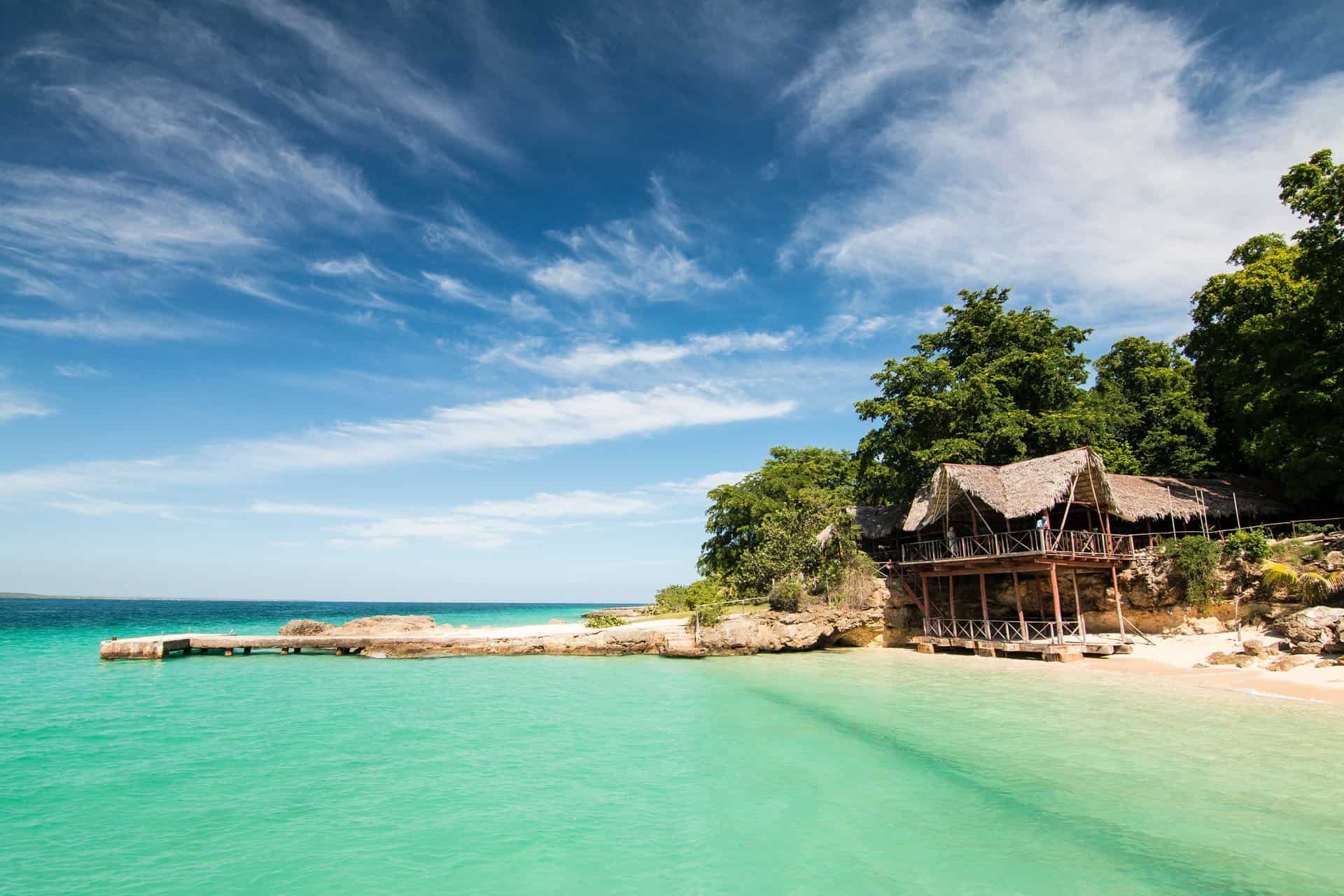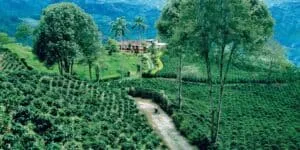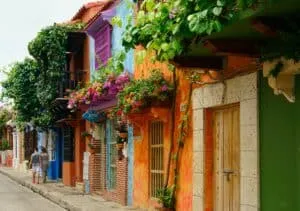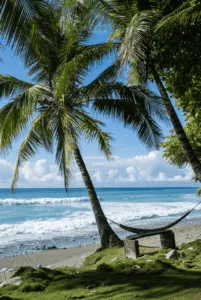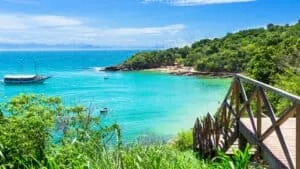
Richard McColl has worked as a journalist across Latin America.
Having first travelled to Colombia in the late 90s, McColl made the move to Bogotá in 2007. Now splitting his time between Mompox and the capital, McColl hosts the popular ‘Colombia Calling’ podcast exploring the political, social and economic dynamics of the country as well as running his hotel La Casa Amarilla in Mompox.
We caught up with Richard to get the inside track on what’s changed since he first set foot on Colombian soil as well as what’s in the pipeline for his adopted country.
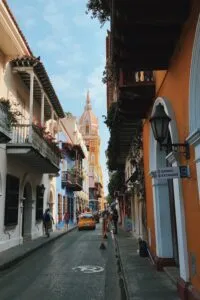
1. How did you come to live in Colombia?
It just kind of happened as an extension to my life in Latin America, before moving to Colombia, I had already been living in and working in most of Latin America for eight years. I held various jobs in Guatemala, Costa Rica, Peru, Brazil, and Ecuador and then had freelance gigs all over the place, from Suriname to the Falklands, so Colombia was always on my radar and I first visited in 1998.
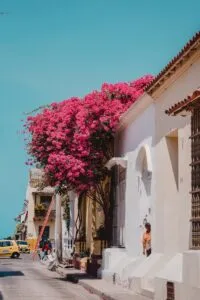
2. How has the country changed since you first arrived?
My first job here in Colombia was to travel along the Pacific coast from Guapi to Buenaventura and spend some time in small towns as well as in Tumaco. I was working for the environmental NGO WWF at the time and was writing about the communities living amongst the mangroves and the need for the protection of this fragile ecosystem. In the late 1990s, Colombia was a very different place to today. Traveling as a journalist with a photographer through areas controlled by armed groups aroused all sorts of suspicion and we had to check in with the local priest in each town, who would then relay the information about us to the “muchachos” – as the guerrilla is known – and then we would be granted permission to stay. That was the late 1990s, but when I moved full-time to Colombia in 2007 a great deal had changed, there is still a long way to go but those of us here could feel a difference.
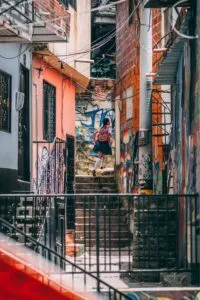
3. Richard, tell us a bit about your hotel and life in Mompox – what drew you to this remote corner of Colombia?
I live in Bogotá with my family, but Mompox is very much in my heart. I had read about the town during my undergraduate studies in England when I did a module on the “Exploration of the New World,” and so it was a place that occupied a sense of mystery for me. When I finally got there in 2007 during the famous Semana Santa celebrations, just two foreigners were visiting, myself and another journalist. We started talking and decided that Mompox was under-explored due to the lack of information about the town and I have to articulate here that when I am traveling and exploring, Mompox is the kind of place I look for. You don’t come here by chance, you have to think about it, and once you have overcome the challenges of reaching the town you are received by a wonderful community, protected and preserved colonial architecture, a garciamarquian ambiance, and the natural beauty of the Magdalena River running past. It’s not a big town and it’s not for everyone, but, it’s authentic and represents a forgotten Colombia. So, I ended up buying a ruined house and then restoring it to make the Casa Amarilla. Then, I bought another one and restored it to become my own house there, and then another one which will open this year as a top-end seven-room hotel called San Rafael.
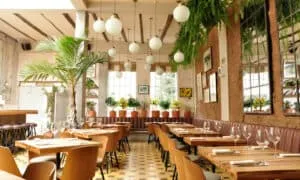
4. Where do you like to eat and drink when in Bogota?
Bogotá has undergone a culinary turnaround in the past decade and this is a huge bonus for those of us living here. The city is now a capital for foodies and restaurants and bars are springing up all the time. Amongst my favourite restaurants are Mesa Franca, Salvo Patria, and Abasto. To enjoy a drink, I will go to the Mono Bandido in Quinta Camacho for craft beer. I’m not one for cocktails, but Café Universal is highly recommended.
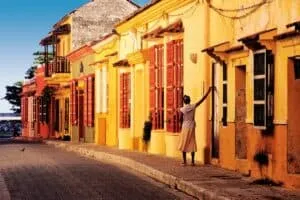
5. What, for you, represents the perfect 12-day itinerary for a newcomer to Colombia?
Colombia’s Achilles heel is that there is too much to see and visit, so I would suggest planning two visits to the country. A twelve-day trip cannot do somewhere with so much diversity any justice at all, but, if you only have twelve days you should fit in cosmopolitan Bogotá, the urban regeneration in Medellin, and some time in the beautiful coffee region and then finish it all off, eat and drink in sophistication in Cartagena and the nearby Caribbean islands.
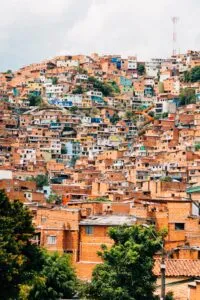
6. Where is Richard McColl the happiest?
I have various places where I am happiest, I love the district of Chapinero where I live in Bogotá, there is so much going on and there’s a certain dynamism when it comes to new restaurants and bars springing up. I love relaxing in my home in Mompox. But, I try to travel to a new place with my family each year in Colombia and the country never disappoints.
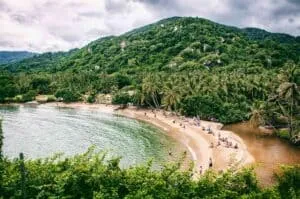
7. What do you miss most from home and what rarefied UK luxuries do you smuggle back to Bogota?
You know what, I don’t miss too much at all. If the yearning got too great, I suppose I’d move back, but I’ve been away so long now!
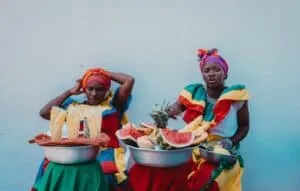
8. What book would you recommend to someone traveling to Colombia for the first time?
It really depends on what you want to get from your trip to Colombia as this country is so complex. If you want to learn about history, then there’s no better book than David Bushnell’s, ‘The Making of Modern Colombia: a Nation in Spite of Itself’. For something more contemporary then, Tom Feiling’s, ‘Short Walks from Bogotá’ is a good place to start. But for Colombia authors, check out Fernando Vallejo, Juan Gabriel Vasquez, Laura Restrepo, and of course Gabriel Garcia Marquez.
9. What do you never travel without?
A DSLR camera as there’s no substitute for quality when it comes to photography.
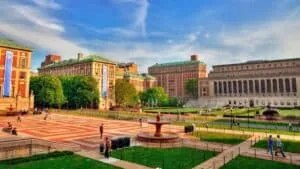
10. Where do you expect Colombia to be in five years?
Well, there are two ways of looking at this. Colombia will continue to grow in terms of tourism but there will be notable obstacles in the way. I would hope that in five years time there’s a government in place with a genuine interest in changing the political dialogue from “security” to “reconciliation and infrastructure.” The country is positively screaming out for better infrastructure and to turn the page on this chapter of the violence, and it’s going to take time but we all need to be invested in this. Tourism will be key in future years as Colombia is very much the sleeping giant of eco-tourism and she’s only just starting to be recognized as a viable travel option. If we can manage to keep the peace accord on track, and increase transparency in politics and business to create a more fair and equitable society, there’s no knowing how much Colombia can achieve, however, this is going to require so much commitment from all sectors of society since we have lived so many years of institutional malfeasance and violence.
Listen to Richard McColl’s weekly Colombia Calling podcast and visit his Mompox-based hotel La Casa Amarilla. Keep an eye out for his next venture, a new seven-room hotel, San Rafael, also in Mompox.
Related Stories
@plansouthamerica
